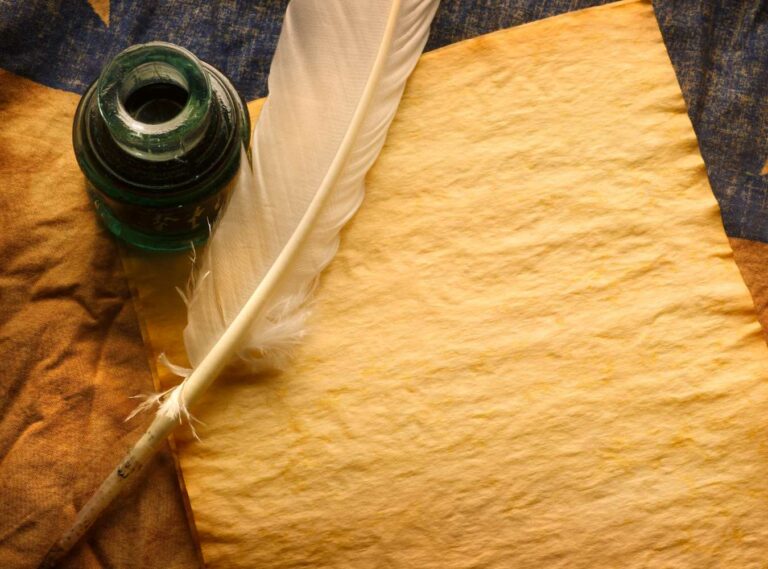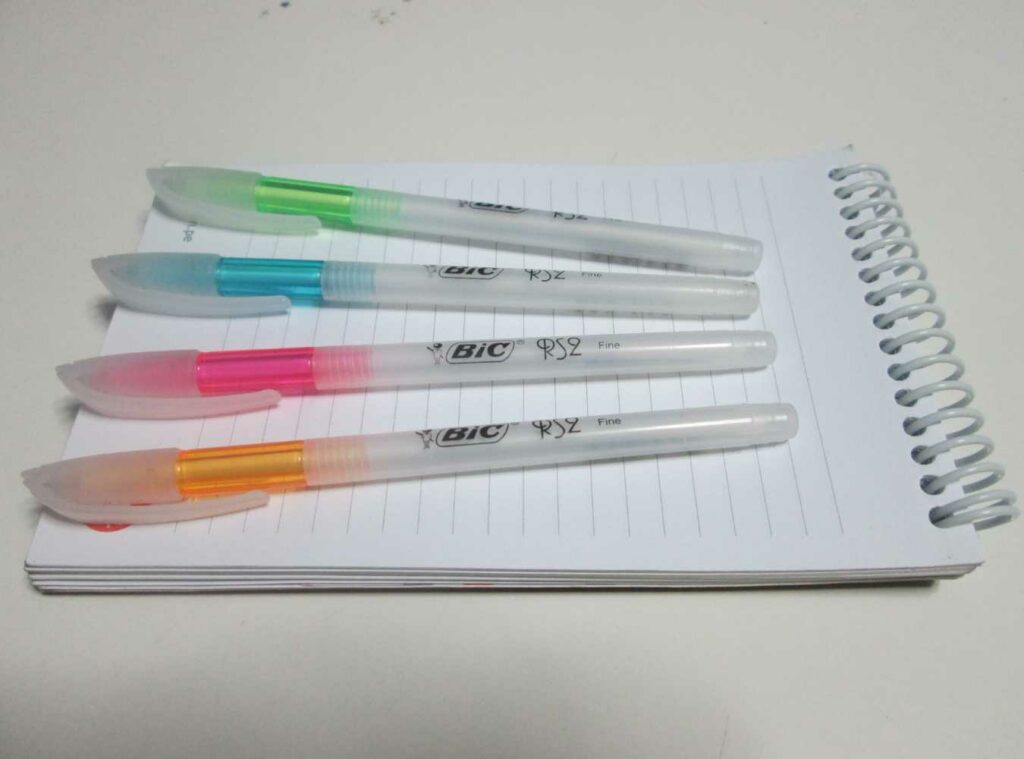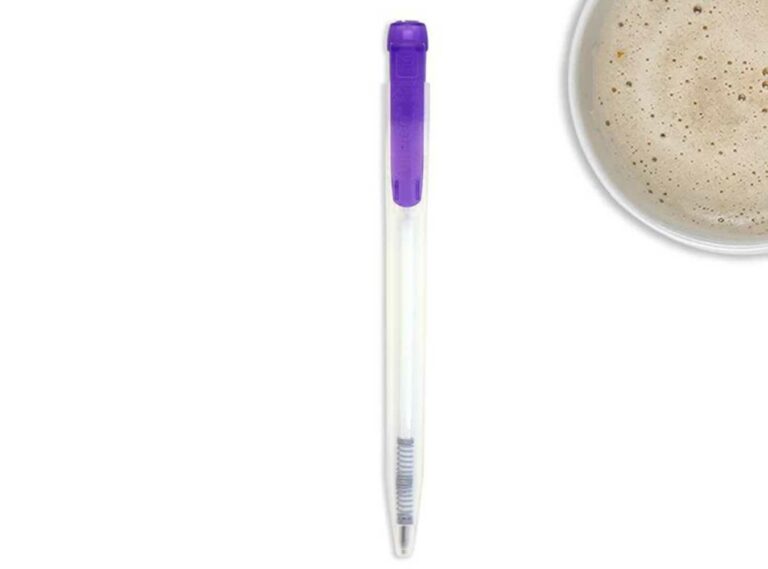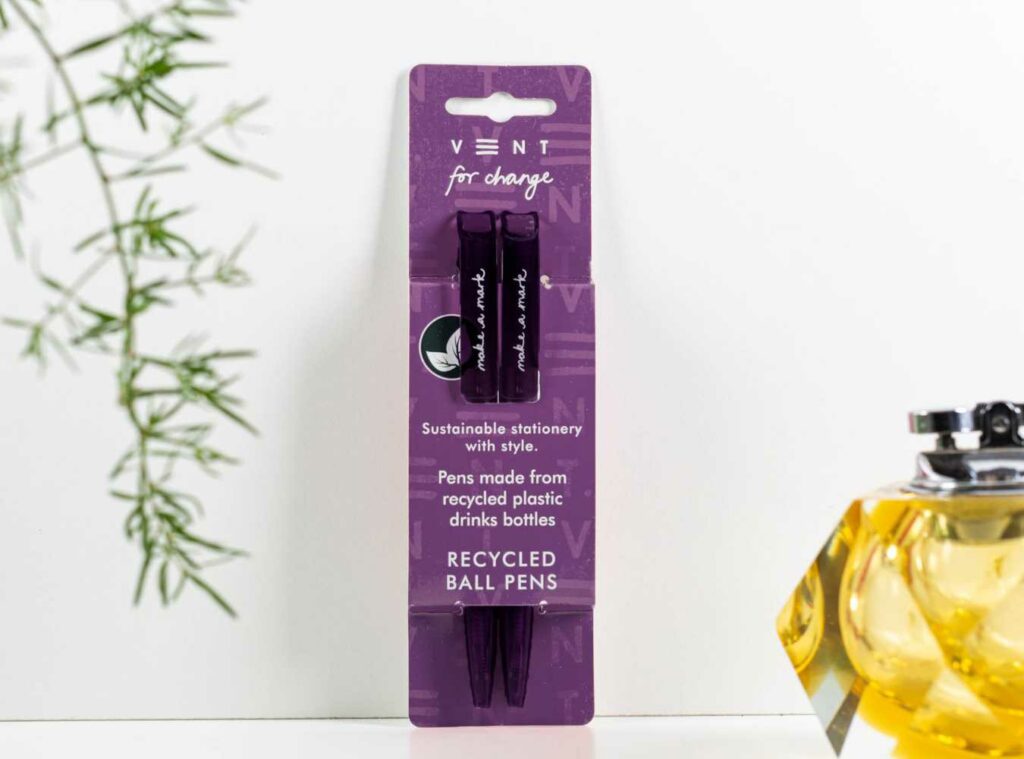
Pens Are Everywhere
If you have a look in your desk drawer, in your bag or even around your house, how many pens do you find?
The likelihood is you will find a lot more than you expected and you will probably find a lot that are personalised with a bank or company name.
The pen is now a mass-produced item that seems to get literally everywhere and since they were first used around 3200BC, the environmental impact of one of our most important tools has grown enormously.
This week we delve into the history and environmental impact of the pen and suggest some sustainable alternatives to your plastic ballpoint.
The History of Pens
Whilst the first writing was recorded around 6000 BCE, it wasn’t until around 3200 BCE when the ancient Egyptians used reed, bamboo and plant stems as styluses to create hieroglyphs on clay tablets.
By around 2500 BCE the clever Egyptians invented writing ink which was made from water, soot, vegetable extract or boiled donkey skin!
The earliest quills were used to write the Dead Sea Scrolls which date back to around 300 BCE to 100 CE and quills remained the most popular writing tool until 1827 when a Romanian named Petrache Poenaru invented the fountain pen!
For the next hundred years, fountain pens were all the rage, but remained a reasonably expensive writing tool.
Everything changed in 1931 when Laszlo Biro invented the first commercially successful ballpoint pen.
He unveiled his invention at the Budapest International Fair and filed for a patent and by 1938 his plastic, low cost and easy-to-manufacture pen was available to the general public.

The cheapest of all pens, the BIC Cristal made its debut in 1950 and is now the best-selling pen in the world.
Since its launch, BIC has sold 100 billion ballpoint pens globally.
The Environmental Impact of Pens
Pens generally and especially the cheap ballpoints everyone has are made of plastic, which, as you may know, is made from oil, and thus supports the fossil fuel industry.
Whilst the 5 grammes of plastic found in a pen might not have a huge impact on the planet, in America alone 1.6 billion disposable pens are thrown away annually, mostly ending up in landfills.

If we do the maths, that equates to 8 million tonnes of plastic being thrown away in the US, each year, just from disposable pens.
Pens are also hard to recycle as they are made up of a combination of plastics along with brass and tungsten carbide and have to be broken down into their component parts.
The manufacturing process of pens is also harmful to the environment causing huge energy use and the process to create the polystyrene in pens generates CFCs which are 1200 times more damaging than CO2.
The metal parts of the pen, unless recycled, are taken from the ground by mining – another industry that is harmful to the planet.
As you can see, because hairbrushes are mass-produced, short-lived, hard to recycle and made up of environmentally damaging materials, they add to your personal footprint that contributes to climate change.
Sustainable Choices
It’s not looking good for the disposable plastic pen and so it shouldn’t.
Just like disposable straws and other items made of plastic and with short-term use in mind, unless they can be reused or recycled, they will have a negative impact on the planet.
So, what can you do to lower your footprint when it comes to writing?
The 6 Rs of sustainability come to mind here but in general – refuse free pens, you don’t need them.
Rethink your use of disposable pens at home and work and if you have pens that need to be disposed of, don’t throw them in your waste bin.
Terracycle offers a pen recycling service; simply head over to their website, purchase a Zero Waste Box and mail your end-of-use pens to them to be broken down and recycled.
BIC has actually recognised the issue their pens create and have partnered with Terracycle to offer a pen recycling program.
If you do need to buy a new pen, look for a refillable pen or one made from sustainable materials or switch to a pencil for note taking.

Technology also offers great alternatives to pens as a
tablet and a stylus can now be used for writing, drawing, note taking and more.
Pens That Are Better For The Planet
If you need to use a pen and your last one needs to be replaced, there are sustainable brands out there that will help you reduce your footprint
The first brand we looked at is Remarkable which have a fantastic range of Eco Pens made from recycled paper, recycled plastic and recycled drinks bottles.
Our favourite pen from them is the re-newable ballpoint pen which is made from a new natural material, PLA which is made from 100% renewable plant sources and bio-degrades into compost.

We also found some amazing Eco Scribe paper pens on Etsy.
These eco-friendly paper pens are 100% plastic free, fully recyclable, and biodegradable and they even provide instructions on how to recycle the pens.
Best of all you will be supporting a small business trying to do things a better way!
The final brand we looked at comes from Bristol and is called Vent For Change which makes lots of sustainable stationery.
We love their recycled drinks bottle pen that is made from recycled single-use plastic drinks bottles and is fully recyclable at end of life.
There is no discount on our favourite brand this week as Vent For Change, like Play it Green, gives 10% of each sale to a good cause, in their case, they fund children’s education projects worldwide and we don’t want to reduce their impact.
How’s that for a sustainable product that has even more positive meaning when you use it?
That’s it for this week. Hopefully, you learned something new and had a moment of inspiration.
If you get the chance, please share what you learned with friends and colleagues and you will help to create the positive change we need!
Just one step...

Join the Play It Green community and learn how to be the solution to climate change




